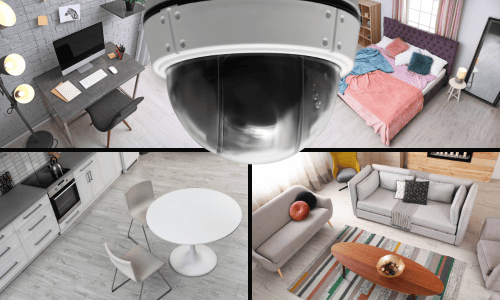How to Choose the Right CCTV Camera System for Your Toronto Home in 2025
Keeping your home safe in a busy city like Toronto is more important than ever. Whether you live in a condo downtown, a house in Scarborough, or a townhouse in Mississauga, a reliable CCTV camera system can give you peace of mind. But with so many options available, choosing the right one for your home can feel overwhelming.
Home security systems in Toronto have evolved dramatically over the past few years. From basic analog cameras to AI-powered smart surveillance systems, today’s CCTV technology offers features that were unimaginable just a decade ago. The challenge isn’t finding a camera system, it’s finding the right one for your specific needs, budget, and Toronto neighborhood.
This comprehensive guide will walk you through everything you need to know to choose the best CCTV camera system for your Toronto home without the technical confusion. We’ll cover costs, installation options, legal requirements, and specific recommendations for different types of Toronto properties. Let’s dive in.
Table of Contents
Why You Need a CCTV System in Toronto
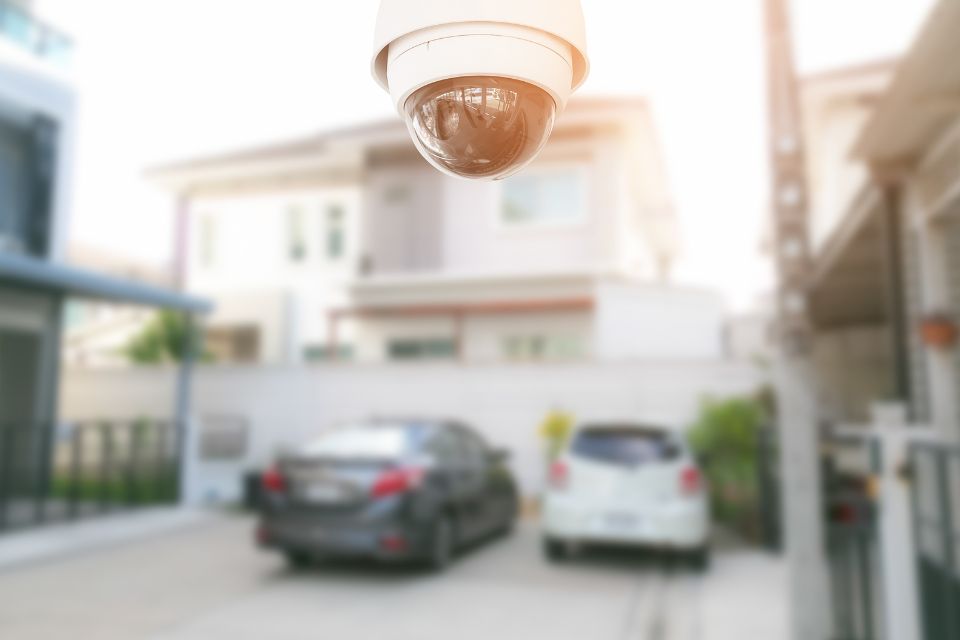
Toronto is a vibrant city, but like all big cities, it’s not immune to property crime. According to Toronto Police Service statistics, property crimes including break-ins, package theft, and vandalism remain significant concerns for homeowners across the GTA. CCTV cameras act as a strong deterrent against these crimes and provide crucial evidence when incidents occur.
Recent studies show that homes with visible security cameras are 300% less likely to be targeted by burglars. Installing a quality camera system means:
- 24/7 surveillance of your home – Monitor your property even when you’re sleeping or away
- Instant alerts if suspicious activity is detected – Get notifications on your phone within seconds
- Recorded footage in case of a break-in or dispute – Essential evidence for police and insurance claims
- Peace of mind when you’re at work or away on vacation – Check in on your home from anywhere in the world
- Protection against false liability claims – Video evidence can save you thousands in legal disputes
- Insurance discounts – Many Toronto insurance companies offer discounts for homes with security systems
Whether you’re in North York dealing with urban density, Brampton’s growing suburbs, or downtown Toronto’s high-rise living, security starts with visibility.
Common Security Challenges in Different Toronto Areas
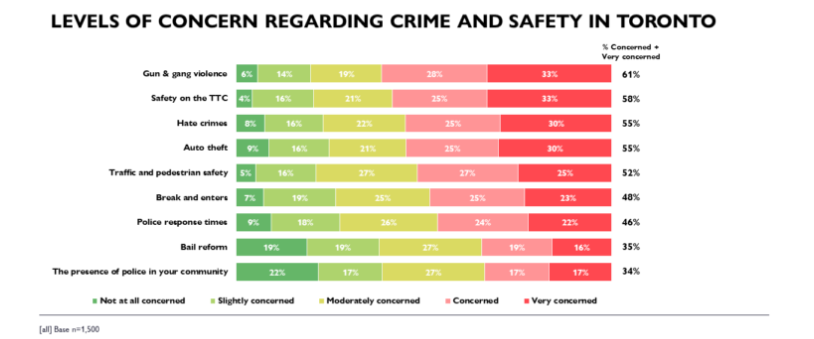
Downtown Toronto (M5V, M5H, M5J): Package theft from condo lobbies, vehicle break-ins, and vandalism are primary concerns. Residents need cameras that work well in low-light urban environments.
Scarborough (M1B, M1C, M1E): Larger properties require comprehensive coverage. Motion detection and perimeter monitoring are essential for detached homes with driveways and backyards.
Mississauga (L5A, L5B, L5C): Mix of condos and houses means varying security needs. Weather resistance is crucial due to exposure to Lake Ontario weather patterns.
North York (M2J, M2K, M2L): High-density residential areas need discreet cameras that don’t violate neighbor privacy while providing effective monitoring.
1. Understand the Types of CCTV Cameras
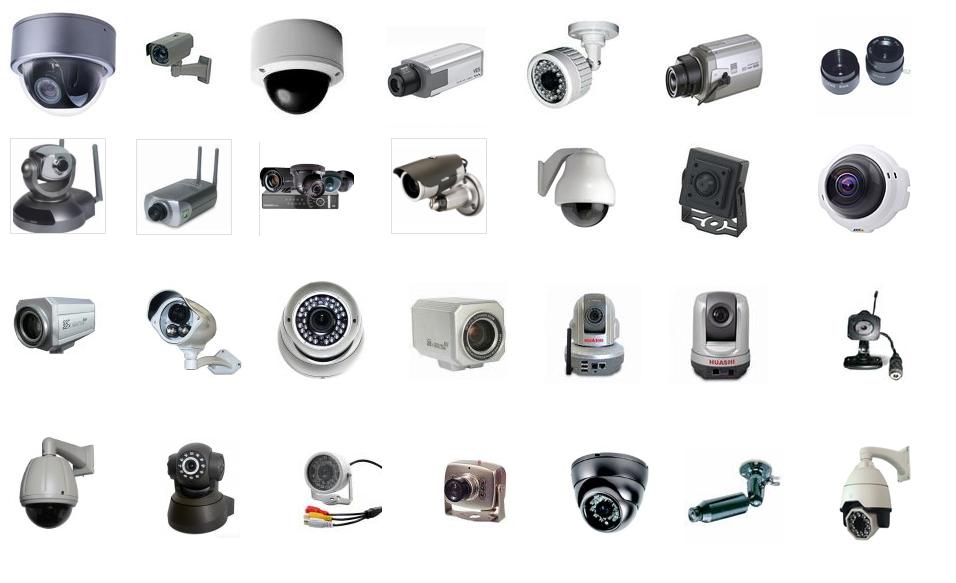
Before buying, know your options. Each camera type serves different purposes and works better in specific Toronto housing situations. Here are the most common types:
➤ Dome Cameras
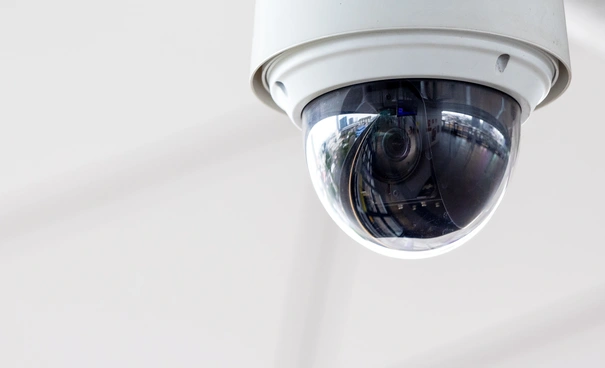
These are popular for indoor use and have a sleek design. The dome shape makes it hard for intruders to see which direction the camera is facing, creating uncertainty that enhances deterrent value.
Best for: Toronto condos, apartment hallways, indoor monitoring
Pros: Vandal-resistant, 360-degree coverage options, aesthetically pleasing
Cons: Can be harder to clean, may have glare issues with certain lighting
Price range: $80-$300 CAD
➤ Bullet Cameras
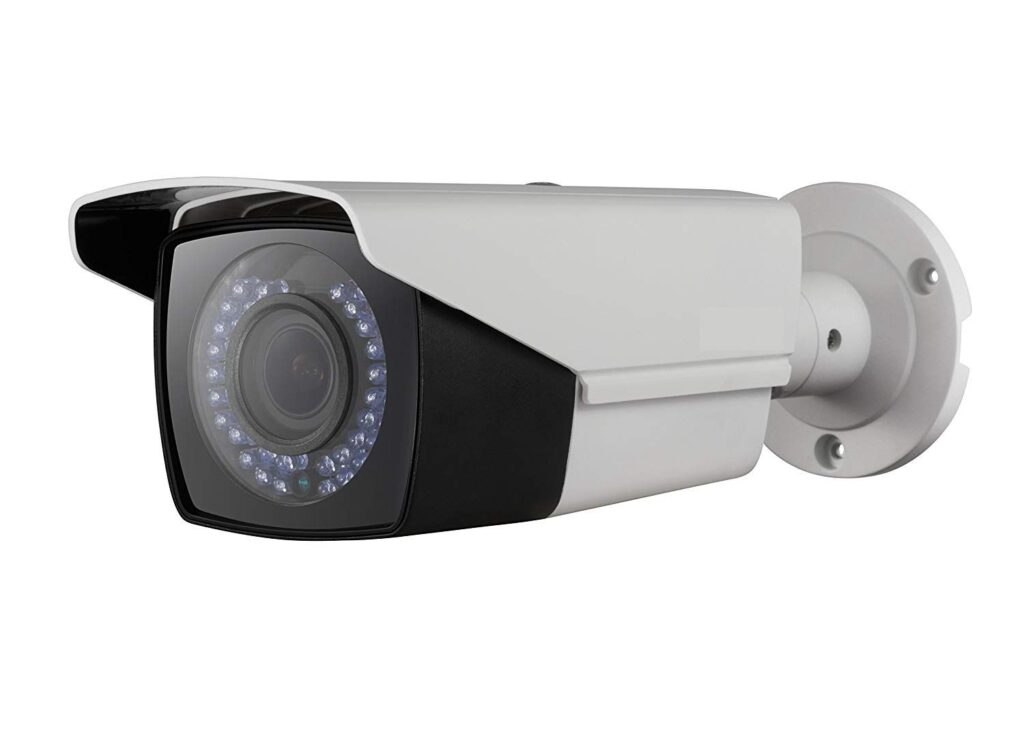
Best for outdoor use. They’re visible (which can scare off intruders) and are ideal for covering long-distance views like driveways or backyards. Their cylindrical shape handles Toronto’s weather extremes well.
Best for: Driveways, backyards, perimeter monitoring, parking areas
Pros: Easy to install, excellent range, weatherproof options
Cons: More obvious, can be targeted by vandals
Price range: $100-$400 CAD
➤ Wireless Cameras
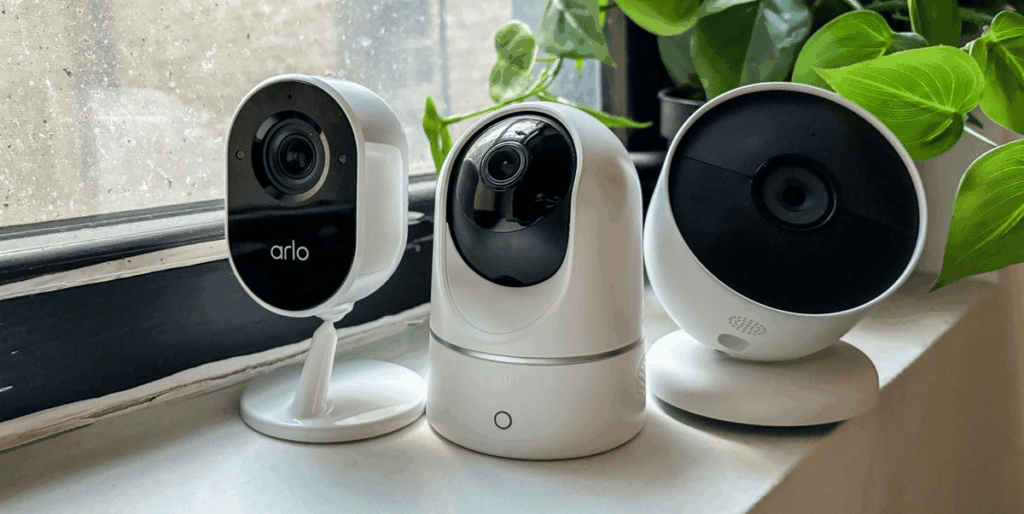
Great for Toronto homeowners who prefer DIY installations. No complex wiring needed. Just plug them in and connect to Wi-Fi. Perfect for renters who can’t make permanent modifications.
Best for: Renters, quick installations, temporary monitoring
Pros: Easy installation, portable, no wiring required
Cons: Dependent on Wi-Fi strength, battery maintenance required
Price range: $150-$500 CAD
➤ PTZ Cameras (Pan, Tilt, Zoom)
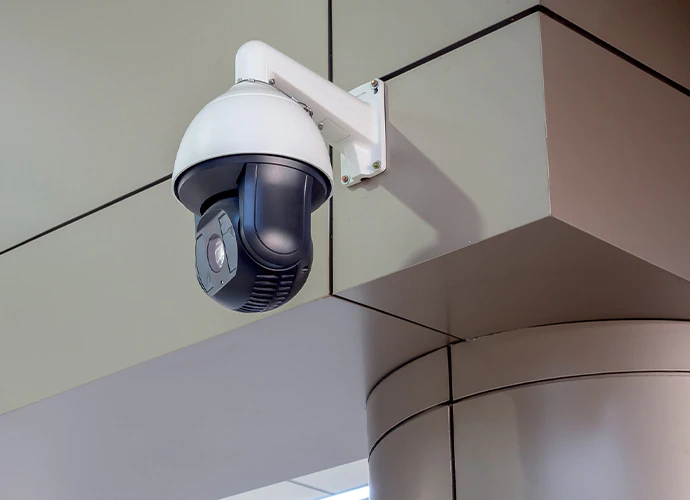
These are flexible cameras that can move around and zoom in to capture fine details. Perfect for large homes or properties with multiple access points. Many Toronto homeowners use these for comprehensive backyard monitoring.
Best for: Large properties, active monitoring, detailed surveillance
Pros: Flexible coverage, remote control, detailed zoom capabilities
Cons: More expensive, requires more bandwidth
Price range: $300-$1000+ CAD
➤ Hidden/Discreet Cameras
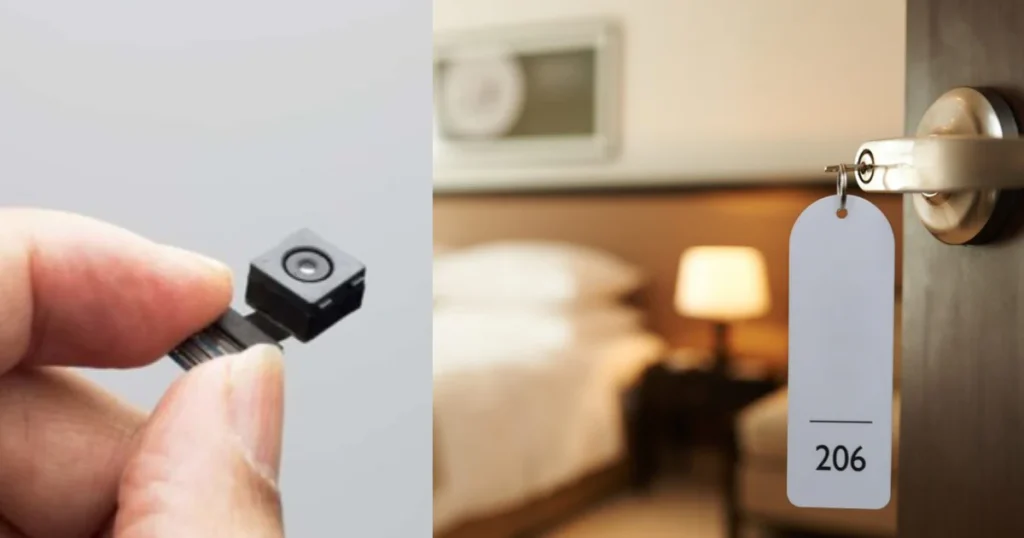
Increasingly popular among Toronto homeowners who want security without obvious surveillance equipment. These cameras blend into doorbells, light fixtures, or decorative elements.
Best for: Discrete monitoring, catching repeat offenders, neighbor-sensitive areas
Pros: Undetectable, can catch criminals off-guard
Cons: Limited deterrent effect, may have legal restrictions
Price range: $200-$600 CAD
2. Consider Image Quality (Resolution Matters)
Don’t settle for grainy footage that won’t hold up in court or help police identify suspects. Toronto homeowners should prioritize high-resolution cameras that can capture clear details even in challenging urban lighting conditions.
Resolution Options Explained:
1080p Full HD (1920×1080): The minimum acceptable standard. Good for general monitoring but may struggle with fine details at distance.
4K Ultra HD (3840×2160): Increasingly popular among Toronto homeowners. Provides excellent detail for identifying faces, license plates, and other crucial evidence. Essential if your camera needs to cover large areas like driveways or yards.
8K Resolution: Emerging technology, but file sizes are massive and may overwhelm your internet connection and storage capacity.
Factors Affecting Image Quality in Toronto:
- Urban lighting pollution: Downtown areas have constant ambient light that can wash out camera footage
- Seasonal light changes: Toronto’s extreme seasonal variations affect camera performance
- Weather conditions: Snow, rain, and fog can significantly impact image clarity
- Distance requirements: Larger suburban properties need cameras that maintain quality at greater distances
Recommendation: Choose at least 1080p Full HD resolution, though many Toronto homeowners are now upgrading to 4K CCTV systems for ultra-clear video especially useful when identifying faces or license plates from Toronto streets.
3. Think About Storage: Local vs Cloud vs Hybrid Solutions
Storage is one of the most important decisions you’ll make. Toronto homeowners have three main options, each with distinct advantages for different situations and budgets.
Local Storage (DVR/NVR)
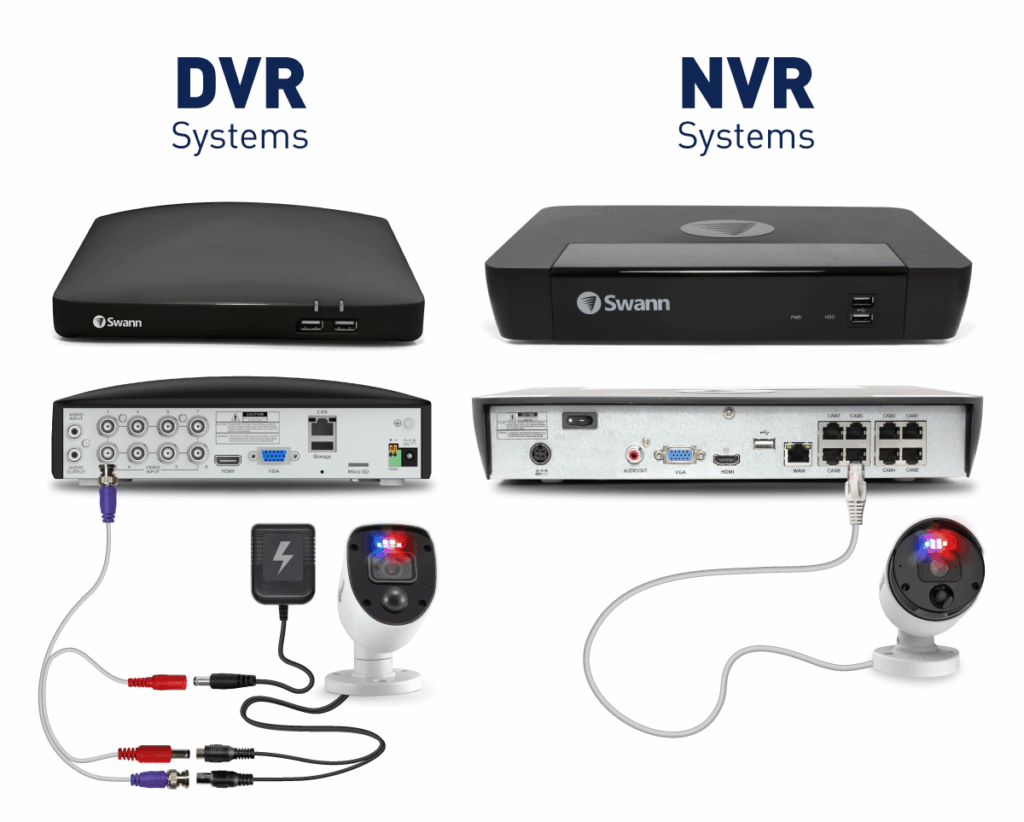
Data is stored on a physical hard drive in your home. Popular among Toronto homeowners who want complete control over their footage.
Pros:
- No monthly fees after initial purchase
- Complete privacy control
- Works without internet connection
- Large storage capacity available
- One-time cost
Cons:
- Can be stolen with other valuables
- No remote access without additional setup
- Requires technical knowledge for maintenance
- Hardware can fail
Best for: Tech-savvy homeowners, privacy-conscious users, areas with unreliable internet
Cloud Storage
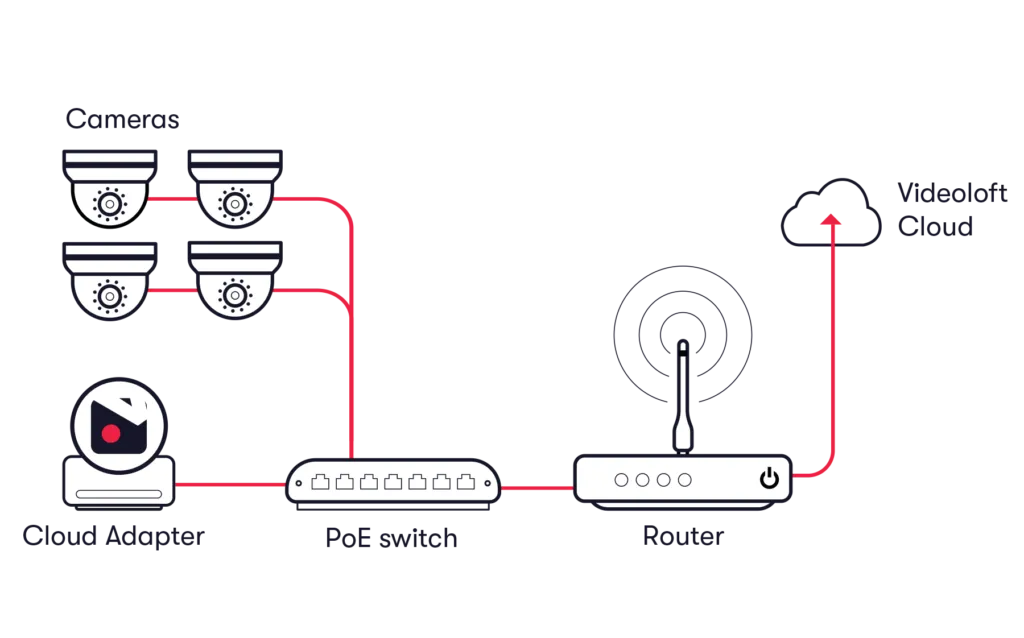
Footage is uploaded to secure online servers. Allows remote access anytime, anywhere—perfect for Toronto’s busy professionals who travel frequently.
Pros:
- Access footage from anywhere
- Professional-grade security
- Automatic backups
- No hardware maintenance
- Regular updates and features
Cons:
- Monthly subscription fees ($10-$50 CAD/month)
- Dependent on internet speed
- Privacy concerns for some users
- Limited storage in basic plans
Best for: Frequent travelers, rental properties, users who want hassle-free maintenance
Hybrid Solutions
Combines local and cloud storage for maximum security and convenience. Growing in popularity among Toronto homeowners who want both reliability and accessibility.
Benefits:
- Best of both worlds
- Redundant backup protection
- Flexible access options
- Cost-effective long-term
Many modern systems offer hybrid options—giving you the best of both worlds while addressing Toronto-specific needs like power outages during winter storms.
4. Night Vision is a Must for Toronto Homes
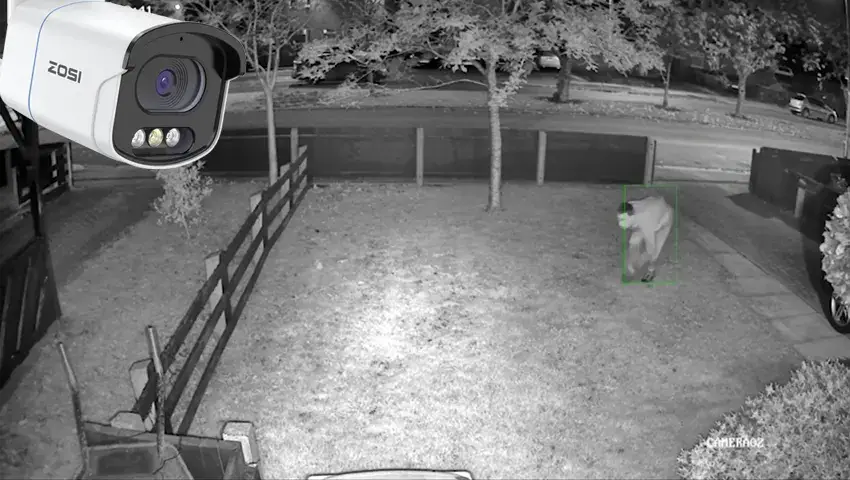
Toronto gets dark early in winter months (sunset as early as 4:30 PM in December), and statistics show that many break-ins happen between 6 PM and midnight. Make sure your camera has quality night vision capabilities.
Types of Night Vision:
Infrared (IR) Night Vision:
- Uses invisible infrared light
- Produces black and white footage
- Effective range: 30-100 feet depending on camera
- Most common and affordable option
Color Night Vision:
- Uses ambient light and advanced sensors
- Maintains color information in low light
- More expensive but provides better detail
- Useful for identifying clothing colors, vehicle colors
Starlight Technology:
- Advanced sensors that work in extremely low light
- Provides color footage in near-complete darkness
- Premium option for maximum security
Toronto-Specific Night Vision Considerations:
- Winter conditions: Snow can reflect IR light, causing overexposure
- Urban light pollution: Downtown cameras may not need as powerful night vision
- Street lighting: Consider how existing street lights affect your camera’s performance
- Seasonal changes: Ensure cameras work well in both long summer days and short winter days
Essential for capturing clear video after sunset and during Toronto’s long winter nights.
5. Weatherproof and Durable for Canadian Winters

Toronto winters are no joke, with temperatures dropping to -20°C and below, plus ice storms, heavy snow, and freeze-thaw cycles that can damage electronics. Your CCTV system needs to handle these extreme conditions year-round.
Weather Rating System (IP Ratings):
IP65: Dust-tight and protected against water jets. Minimum for Toronto outdoor cameras.
IP66: Dust-tight and protected against powerful water jets. Better for areas exposed to driving rain.
IP67: Dust-tight and protected against temporary submersion. Best for areas prone to flooding or heavy snow accumulation.
Toronto Climate Challenges:
Temperature Extremes:
- Summer highs: +35°C with high humidity
- Winter lows: -25°C with wind chill
- Daily temperature swings of 20°C+ in spring/fall
Precipitation:
- Ice storms that coat equipment in thick ice
- Heavy, wet snow that can block camera views
- Spring flooding in some Toronto areas
- Summer thunderstorms with high winds
Additional Durability Features:
- Heater elements: Keep cameras functioning in extreme cold
- Sun shields: Prevent overheating during hot Toronto summers
- Vandal-resistant housings: Important in high-traffic urban areas
- Corrosion-resistant materials: Essential near Lake Ontario’s humid environment
Choose IP65-rated or higher outdoor cameras that are waterproof and snow-resistant. They should be able to operate in extreme temperatures, from Toronto’s freezing cold to humid summer heat.
6. Check for Motion Detection and Smart Alert Systems
Modern CCTV systems use smart motion sensors and AI technology to detect unusual activity and reduce false alarms. This is especially important in busy Toronto neighborhoods where cars, pedestrians, and urban wildlife can trigger constant alerts.
Types of Motion Detection:
Basic Motion Detection:
- Detects any movement in camera view
- High false alarm rate from trees, cars, people walking by
- Suitable for low-traffic areas only
Smart Motion Detection:
- Uses AI to distinguish between people, vehicles, animals, and objects
- Significantly reduces false alarms
- Can ignore routine movements like garbage trucks or mail delivery
Person/Vehicle Detection:
- Specifically identifies humans and vehicles
- Ignores pets, moving shadows, weather effects
- Essential for busy Toronto streets
Advanced Alert Features:
When motion is detected:
- Instant smartphone notifications with thumbnail images
- Email alerts with video clips attached
- Automatic recording starts immediately
- Sound alarms or light activation to deter intruders
- Integration with smart home systems for comprehensive response
Customizable Alert Zones: Set specific areas where you want alerts (like your front door) while ignoring busy sidewalks or neighboring properties. This is crucial for Toronto row houses and semi-detached homes where properties are close together.
This feature is especially useful if you’re often away from home, work long hours in Toronto’s business district, or travel frequently for work.
7. Integration with Other Smart Devices

Toronto homeowners increasingly use smart home technology. Your CCTV system should integrate seamlessly with existing devices to create a comprehensive security ecosystem.
Popular Smart Home Integrations:
Voice Assistants:
- Amazon Alexa: “Alexa, show me the front door camera”
- Google Assistant: Voice control and display integration
- Apple HomeKit: Secure integration with iPhone/iPad
Smart Doorbells:
- Ring, Nest Hello, Arlo: Coordinate with CCTV for complete door monitoring
- Two-way audio: Communicate with visitors or delivery drivers
- Package detection: Get alerts when deliveries arrive
Smart Home Security Systems:
- ADT, Rogers, Bell: Professional monitoring integration
- DIY systems: SimpliSafe, Abode compatibility
- Smart locks: Automatic recording when doors are unlocked
Home Automation:
- Smart lights: Activate when motion detected
- Smart thermostats: Energy savings when nobody’s home
- Garage door openers: Monitor and control remotely
Benefits of Integration:
- Single app control: Manage all security devices from one interface
- Automated responses: Lights turn on when cameras detect motion
- Comprehensive monitoring: Full home security ecosystem
- Cost savings: Bundled services often cheaper than separate systems
- Professional monitoring: Option to connect with Toronto security companies
Make sure your CCTV system can integrate seamlessly with your existing smart home setup. That way, you can manage everything from one app and create automated security responses.
8. Choose the Right Number of Cameras for Your Toronto Property
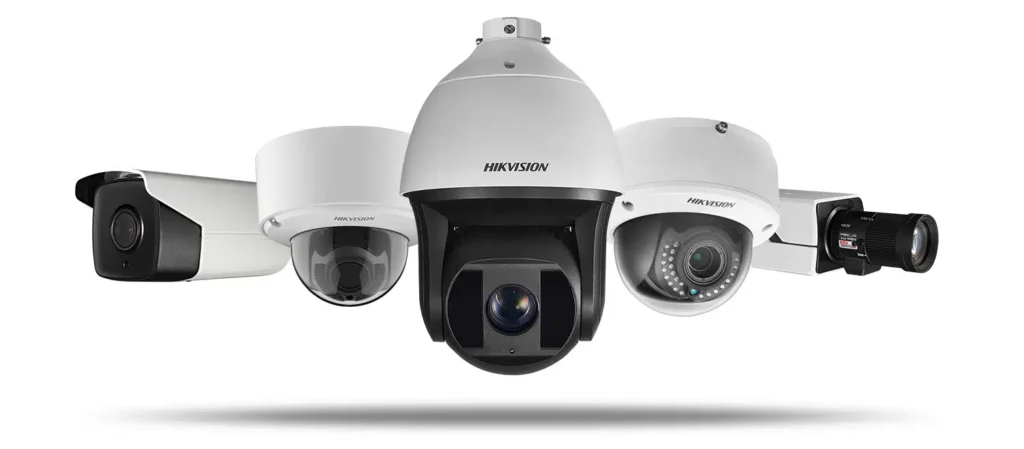
The number of cameras you need depends on your property type, layout, budget, and specific security concerns. Toronto’s diverse housing options require different approaches to camera placement and coverage.
Detailed Camera Recommendations by Property Type:
| Home Type | Recommended Cameras | Key Coverage Areas | Estimated Cost |
|---|---|---|---|
| Downtown Condo | 1–2 cameras | Front door, balcony (if applicable) | $300-$800 CAD |
| Apartment | 1–2 cameras | Entrance, inside hallway, patio door | $300-$800 CAD |
| Townhouse | 2–4 cameras | Front door, back patio, side entrance, garage | $600-$1,600 CAD |
| Semi-detached House | 3–5 cameras | Front door, backyard, side entrance, driveway | $900-$2,000 CAD |
| Detached Home | 4–8 cameras | All entrances, garage, driveway, yard perimeter | $1,200-$3,200 CAD |
| Large Property/Estate | 8+ cameras | Comprehensive perimeter, multiple zones | $3,200+ CAD |
Strategic Camera Placement for Toronto Homes:
Essential Coverage Points:
- Main entrance/front door: Captures all visitors and package deliveries
- Back door/patio: Most common break-in point
- Driveway/parking area: Protects vehicles, captures license plates
- Side entrances: Often overlooked but frequently used by burglars
Additional Coverage for Larger Properties: 5. Garage entrances: Protect expensive tools and equipment 6. Basement windows: Common entry points in older Toronto homes 7. Yard perimeter: Early warning system for property intrusion 8. Pool area: Safety monitoring and liability protection
Special Considerations for Toronto Neighborhoods:
High-density areas (downtown, North York):
- Focus on entry points rather than perimeter
- Consider privacy concerns with close neighbors
- Prioritize discreet camera placement
Suburban areas (Scarborough, Etobicoke):
- Larger properties need comprehensive coverage
- Longer camera ranges required
- Weather resistance more critical
Mixed residential/commercial areas:
- Higher camera counts due to increased foot traffic
- 24/7 monitoring may be necessary
- Integration with business security systems
A professional installer can help you plan your coverage perfectly, ensuring no blind spots while staying within budget and legal requirements.
9. Consider Professional vs DIY Installation
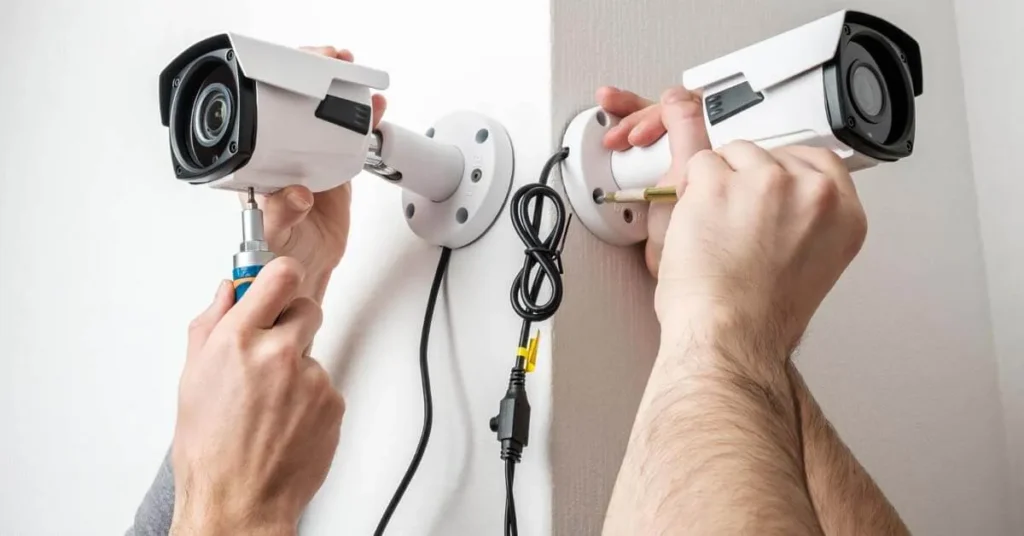
The choice between professional and DIY installation depends on your technical skills, available time, system complexity, and budget. Both options have merit for different Toronto homeowners.
DIY Installation
Best for:
- Tech-savvy homeowners
- Wireless camera systems
- Budget-conscious installations
- Rental properties (no permanent modifications)
- Simple 1-4 camera setups
Advantages:
- Cost savings: Save $300-$800 in installation fees
- Flexibility: Install on your schedule
- Learning experience: Understand your system completely
- No strangers in home: Some prefer DIY for privacy
Challenges:
- Time investment: 4-8 hours for typical installation
- Technical troubleshooting: No professional support during setup
- Warranty issues: Some manufacturers void warranty for DIY installation
- Optimal placement: May miss ideal camera angles without experience
DIY-Friendly Systems:
- Ring, Arlo, Nest outdoor cameras
- Wireless systems with smartphone apps
- Plug-and-play indoor cameras
- Simple 2-4 camera setups
Professional Installation
Best for:
- Complex wired systems
- 5+ camera installations
- Integration with existing security systems
- Homeowners who prefer guaranteed results
- Commercial-grade systems
Advantages:
- Expertise: Optimal camera placement and angles
- Clean installation: Professional wiring and mounting
- System integration: Connect with existing smart home setup
- Warranty protection: Professional installation often required
- Ongoing support: Relationship with local installer
- Time savings: Complete installation in 2-4 hours
Investment:
- Basic installation: $200-$400 CAD
- Complex systems: $500-$1,200 CAD
- Commercial-grade: $1,000+ CAD
Toronto-Specific Installation Considerations:
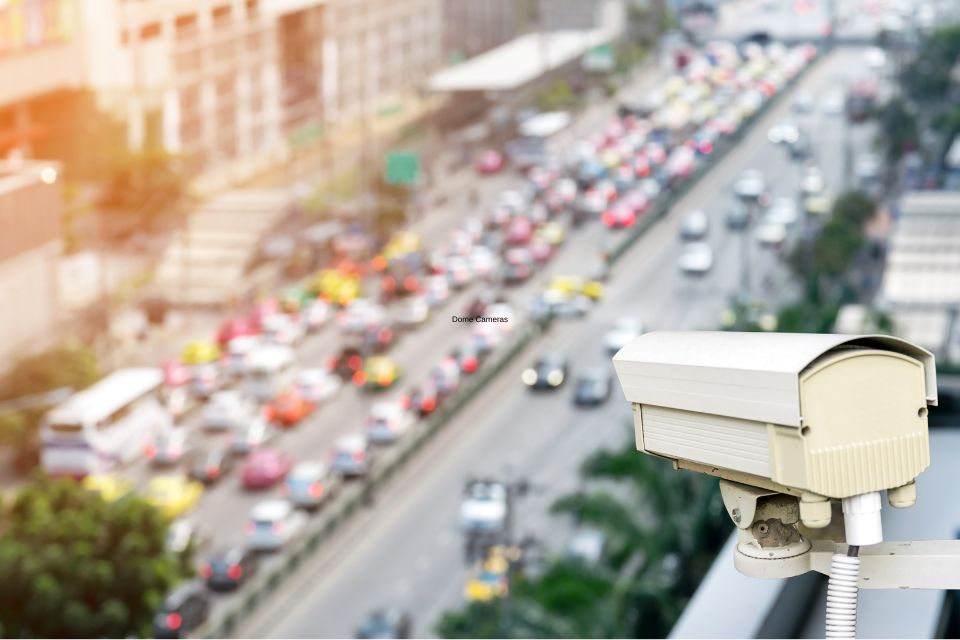
Heritage homes: Many Toronto homes have unique architectural features requiring specialized mounting solutions.
Condo installations: May require building management approval and adherence to specific guidelines.
Winter installations: Professional installers have experience working in Toronto’s harsh winter conditions.
Permit requirements: Some Toronto installations may require permits, especially for commercial properties.
At GTech Security, we offer both professional installation and guided DIY support across the Greater Toronto Area, helping you choose the right approach for your situation and budget.
10. Don’t Forget About Legal Compliance in Ontario
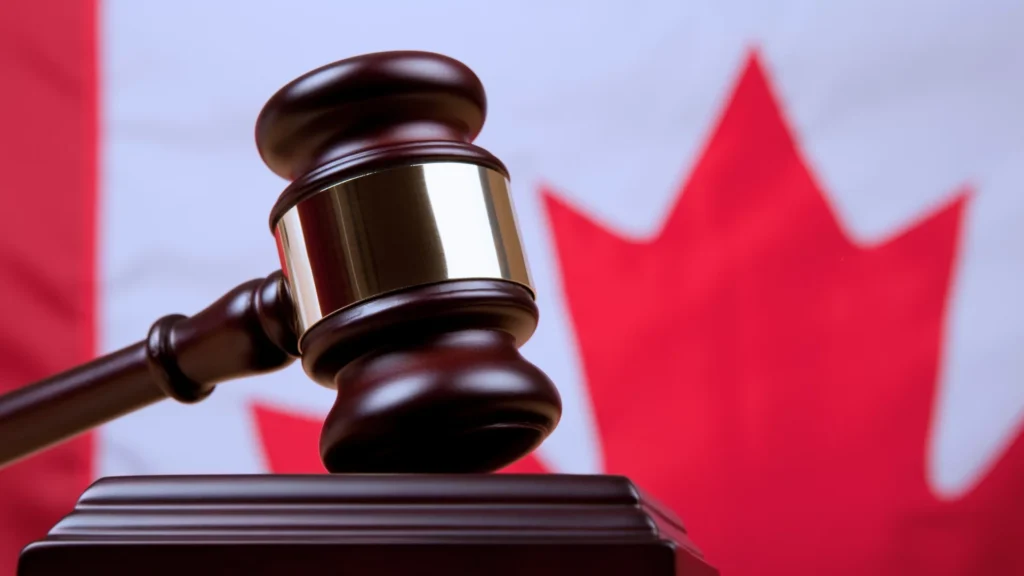
In Toronto and Ontario, you can legally install cameras around your home, but there are important privacy laws and neighbor considerations you must follow. Violating these can result in fines, legal action, and forced camera removal.
Ontario Privacy Laws (PIPEDA Compliance):
What you CAN do:
- Install cameras anywhere on your own property
- Record video and audio on your property
- Monitor your own entrances, driveways, and yards
- Use footage for personal security purposes
- Share footage with police when crimes occur
What you CANNOT do:
- Point cameras into neighbor’s properties, windows, or private areas
- Record beyond your property lines without consent
- Use footage for commercial purposes without proper notifications
- Install hidden cameras in areas where privacy is expected (bathrooms, bedrooms)
- Share footage publicly without blurring faces and identifying information
Specific Toronto Bylaws and Considerations:
Condo and apartment buildings:
- Must comply with building corporation rules
- May need approval from property management
- Cannot interfere with common area surveillance
- Respect neighbor privacy in hallways and shared spaces
Row houses and semi-detached properties:
- Be extra careful about camera angles near neighbors
- Consider privacy screens or angle adjustments
- Good practice to inform immediate neighbors about camera installation
Rental properties:
- Tenants generally allowed to install temporary cameras
- Landlords must follow additional privacy requirements
- Cannot monitor tenant’s private areas
Best Practices for Legal Compliance:
- Camera placement review: Ensure all cameras only capture your property
- Neighbor communication: Informal discussion can prevent complaints
- Privacy screens: Use to block neighboring properties from view
- Clear signage: “Security cameras in use” signs recommended
- Regular review: Periodically check that camera angles haven’t shifted
Professional Legal Assessment:
We always help our clients install their systems legally and ethically. Professional installers understand local regulations and can ensure your system complies with all Toronto and Ontario requirements.
Understanding CCTV System Costs in Toronto
Budget planning is crucial for Toronto homeowners considering CCTV systems. Costs vary significantly based on system type, number of cameras, installation complexity, and ongoing expenses.
Initial Equipment Costs:
Budget Systems ($300-$800 CAD):
- 1-2 wireless cameras
- Basic smartphone app
- Cloud storage (limited)
- DIY installation
- Good for: Small condos, basic monitoring
Mid-range Systems ($800-$2,000 CAD):
- 2-4 high-definition cameras
- Local and cloud storage options
- Professional installation available
- Smart motion detection
- Good for: Townhouses, small detached homes
Premium Systems ($2,000-$5,000+ CAD):
- 4-8+ professional-grade cameras
- Advanced AI features
- Professional installation included
- Comprehensive coverage
- Integration with smart home systems
- Good for: Large homes, comprehensive security
Ongoing Costs:
Monthly Expenses:
- Cloud storage: $10-$50 CAD/month
- Professional monitoring: $30-$80 CAD/month
- Internet bandwidth: May need upgraded plan
- Electricity: Minimal impact on power bill
Annual Maintenance:
- Battery replacement: $50-$100 CAD for wireless cameras
- System updates: Usually free
- Professional servicing: $100-$200 CAD (optional)
Cost-Saving Tips for Toronto Homeowners:
- Start small: Begin with essential cameras, expand later
- Mix wired and wireless: Use wired for permanent positions, wireless for flexibility
- Local storage: Avoid monthly cloud fees with NVR systems
- DIY installation: Save $300-$800 in professional fees
- Bundle deals: Many Toronto security companies offer package discounts
Final Tips Before You Buy Your Toronto CCTV System
Before making your final decision, consider these important factors specific to Toronto homeowners:
Research and Comparison:
Read reviews of each camera brand:
- Focus on Canadian user reviews for climate performance
- Check performance in similar Toronto neighborhoods
- Look for long-term reliability reports
Compare warranties and customer support:
- Local Toronto support vs. international call centers
- Response times for technical issues
- Replacement policies for weather-damaged equipment
Test remote viewing apps:
- User-friendly interface essential for daily use
- Fast connection and loading times
- Compatibility with your smartphone/tablet
Technical Preparation:
Internet Speed Requirements:
- 1080p cameras: 2-5 Mbps upload per camera
- 4K cameras: 8-15 Mbps upload per camera
- Multiple cameras: Ensure your Toronto internet plan can handle total bandwidth
- Consider upgrading: Bell, Rogers, and other Toronto providers offer security system packages
Wi-Fi Network Strength:
- Test signal strength at proposed camera locations
- Consider Wi-Fi extenders for large properties
- Separate IoT network recommended for security devices
Power Requirements:
- Plan electrical outlets for cameras
- Consider PoE (Power over Ethernet) for clean installations
- Battery backup systems for power outages
Seasonal Considerations for Toronto:
Summer preparation:
- Heat shields for cameras in direct sunlight
- Consider Toronto’s high humidity levels
- Storm damage protection
Winter readiness:
- De-icing features for outdoor cameras
- Snow visibility considerations
- Backup power for ice storm outages
Year-round maintenance:
- Regular cleaning schedule for optimal performance
- Seasonal angle adjustments for changing sun patterns
- Weather damage inspection routine
Why Choose GTech Security for Your Toronto CCTV System?
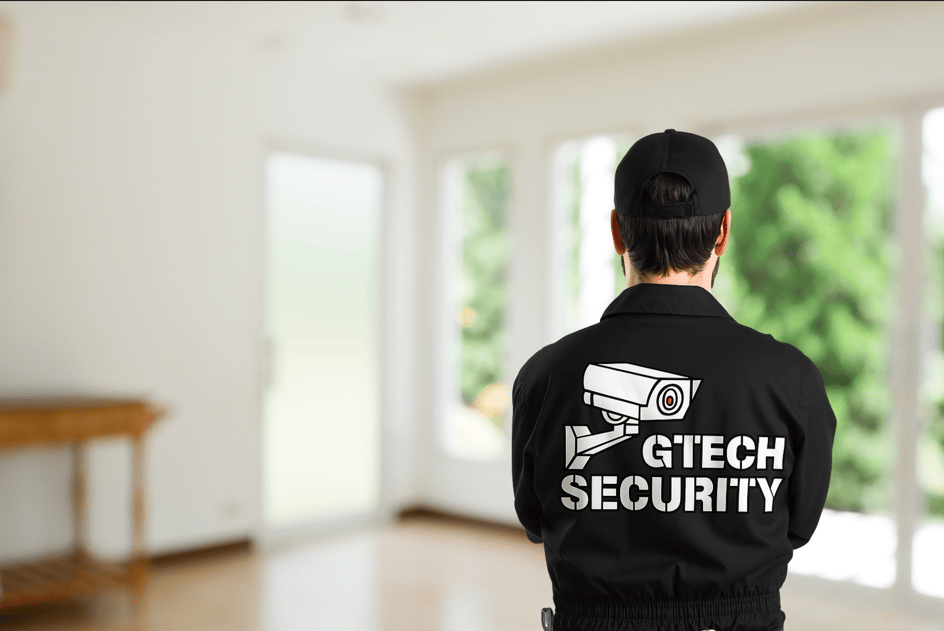
At GTech Security, we specialize in custom CCTV camera systems designed specifically for Toronto homeowners and the unique challenges of Canadian climate and urban living. Our local expertise makes the difference between a security system that works and one that truly protects your home.
Our Toronto Advantage:
✅ Free consultation and property assessment – We visit your home to understand your specific security needs and challenges
✅ High-quality equipment from trusted brands – We only recommend systems proven to work in Toronto’s climate extremes
✅ Weatherproof and night vision-enabled cameras – Every outdoor camera rated for Canadian winters and Toronto’s variable weather
✅ Flexible storage solutions – Local storage, cloud storage, or hybrid systems based on your preferences and budget
✅ Mobile-friendly control systems – Easy-to-use apps that work reliably with Toronto’s cellular networks
✅ Professional installation and ongoing support – Friendly support from real people based in the GTA who understand local conditions
Areas We Serve:
We proudly serve clients across the Greater Toronto Area, including:
- Toronto proper: All downtown neighborhoods, The Beaches, High Park, The Annex
- Mississauga: Port Credit, Streetsville, Meadowvale, Square One area
- Brampton: Bramalea, Heart Lake, Fletcher’s Creek, Downtown Brampton
- Vaughan: Thornhill, Woodbridge, Maple, Concord
- Scarborough: Agincourt, Malvern, Rouge Valley, West Hill
- North York: Willowdale, Don Mills, Bayview Village, York Mills
- Markham, Richmond Hill, Oakville, Burlington, and surrounding communities
What Makes Us Different:
Local Expertise: We understand Toronto’s unique security challenges, from downtown condo living to suburban sprawl.
Climate Knowledge: Our systems are tested and proven in Toronto’s extreme weather conditions.
Legal Compliance: We ensure every installation meets Ontario privacy laws and Toronto bylaws.
Ongoing Relationship: We’re here for the long term with maintenance, upgrades, and support.
Transparent Pricing: No hidden fees or surprise charges – clear pricing for Toronto homeowners.
Ready to Secure Your Toronto Home?
Don’t leave your home’s safety to chance. Toronto’s crime statistics show that property crime remains a significant concern, but homes with visible security systems are dramatically less likely to be targeted. A well-designed CCTV system provides not just deterrence, but peace of mind knowing you can monitor your most important investment from anywhere in the world.
Whether you’re protecting a downtown condo, a family home in the suburbs, or a heritage property in one of Toronto’s established neighborhoods, the right CCTV system will adapt to your specific needs, budget, and lifestyle.
The time to act is now. Every day without proper security coverage puts your property and family at unnecessary risk. Toronto’s weather can be unpredictable, crime can happen in any neighborhood, and package theft continues to increase with online shopping growth.
Take the Next Step:
- Assess your property using our guidelines above
- Determine your budget including equipment and installation
- Research your options based on your home type and neighborhood
- Contact professionals for expert guidance and competitive quotes
👉 Contact GTech Security today for a free quote and expert advice on the right CCTV solution for your Toronto home.
Don’t wait until it’s too late. Protect your Toronto home with a professional CCTV system that works as hard as you do.
GTech Security – Your trusted partner for home security solutions across the Greater Toronto Area. Protecting Toronto families since [year] with reliable, weather-tested security systems designed for Canadian homes.
